Table Of Contents
- 1 0W-20 vs 5W-20: What Is The Difference
- 2 5W20 vs 0W20 - Similar Or Different?
- 3 0W20 or 5W20? Choosing The Right Motor Oil - Best Products And Most Reliable Brands
- 3.1 0W20 and 5W20 top picks
- 3.2 0W-20 – best 4 low-viscosity oils that meet your every need
- 3.2.0.1 BEST PERFORMANCE – CASTROL 03060 GTX MAGNATEC 0W-20 FULL SYNTHETIC MOTOR OIL
- 3.2.0.2 EDITORS PICK – MOBIL 1 120758 ADVANCED FULL SYNTHETIC MOTOR OIL 0W-20
- 3.2.0.3 USER CHOICE – AMAZONBASICS FULL SYNTHETIC MOTOR OIL, SN PLUS, 0W-20
- 3.2.0.4 TOP BUDGET PICK – VALVOLINE ADVANCED FULL SYNTHETIC SAE 0W-20 MOTOR OIL
- 3.3 5W-20 – top 4 oils in different categories
- 3.3.0.1 BEST PERFORMANCE – VALVOLINE FULL SYNTHETIC HIGH MILEAGE WITH MAXLIFE TECHNOLOGY SAE 5W-20
- 3.3.0.2 EDITOR’S PICK – ROYAL PURPLE 36520-6PK HPS 5W-20 SYNTHETIC MOTOR OIL WITH SYNERLEC ADDITIVE TECHNOLOGY
- 3.3.0.3 USER CHOICE – CASTROL 03086 EDGE EXTENDED PERFORMANCE 5W-20 ADVANCED FULL SYNTHETIC MOTOR OIL
- 3.3.0.4 TOP BUDGET PICK – PENNZOIL PLATINUM FULL SYNTHETIC MOTOR OIL
- 4 Faq - Everything You Need To Know About Synthetic Motor Oils
- 4.1 What is synthetic motor oil? What advantages does it have?
- 4.2 Is synthetic oil worth paying more for?
- 4.3 How often should I change synthetic oil?
- 4.4 I have an older car, can I use synthetic oil?
- 4.5 Is synthetic oil compatible with gasoline engines? What about diesel?
- 4.6 What is viscosity?
- 4.7 Thinner or thicker oil – what is better?
- 4.8 What do Dexos 1 and Dexos 2 mean?
- 4.9 Are 0W20 and 5W20 interchangeable?
- 4.10 My owner’s manual says I have to use 5W20, can I use lighter (5W10) or heavier (5W30, 5W40) grade?
- 4.11 Should I switch oils in winter and summer? Can I use 0W20 and/or 5W20 in warmer seasons?
We’ve researched all about 5W-20 vs 0W20 oils more than 14 days – check out this article to find the all the answers!
0W-20 vs 5W-20: What Is The Difference

If the engine is the heart of your vehicle, then engine oil is its blood. It’s extremely important to find the oil that provides proper lubrication, cleaning and protection in specific weather conditions. Given all the options out there, it is not so easy to pick the right one for your vehicle. There are quite a few things the vehicle owners have to know about synthetic oil to make a choice. So today we’ll talk about synthetic motor oil properties, compare two similar yet quite unique types of multi-grade oils (0W20 and 5W20) and try to give the answers to all your questions on this topic in our FAQ section. If you consistently use the wrong type of oil for your engine you might end up damaging your motor or even worse, incur engine failure. New engines are typically pretty expensive so it is best to use the right oil in the first place. However, if you have to replace your engine, look at a cheap rebuilt engine from an online retailer like carpartplanet.com.
5W20 vs 0W20 - Similar Or Different?
Many vehicle owners wonder if there is any difference between 0W20 and 5W20 synthetic motor oil. We’ll find it out soon, but first let’s take a look at short descriptions of these oil types.

Brief review on 0W-20 motor oil
0W-20 is fully synthetic motor oil with thinner viscosity. It protects the motor components perfectly. 0W-20’s temperature range is from -40° to 20°, so it’s great for cold winters, but can be used in mild springs and summers. One of 0W-20 advantages is better fuel economy – it can give your vehicle extra mileage. 0W-20 meets the API SN requirements and is approved by many vehicle manufacturers as a recommended oil.
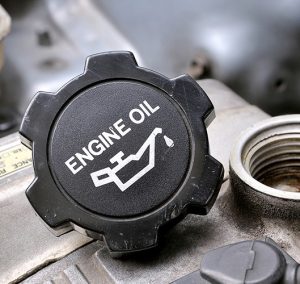
Brief review on 5W20 motor oil
5W20 is fully synthetic multi-grade oil with thicker viscosity that provides better sealing action. Adjustable for both mild summers and not too cold winters, as it’s temperature range is from -25° to 20°. It protects the engine greatly and works decently for regular everyday use. Can also optimize the fuel economy. This oil also meets all the API SN requirements and is recommended for use by many modern car brands.
0W20 and 5W20 – so similar but still different
The main difference between these two synthetic oil types hides into their codes. So what do the numbers and letters of the code mean?
The letters and numbers in the code indicate the main properties of the synthetic oil. Let’s take 5W20 as the example:
- 5 – the number at the beginning refers to the weight of the oil.
- W (winter) – this letter means that this oil variety is suitable for use in colder climates.
- 20 – the number in the end indicates viscosity (thickness) of the oil.
Synthetic motor oils get thinner when it heats up and thicker when it’s cold outside. 5 – the first number – shows the viscosity of synthetic oil in cold temperatures. 20 – the last number – indicates oil’s viscosity at operating temperatures.
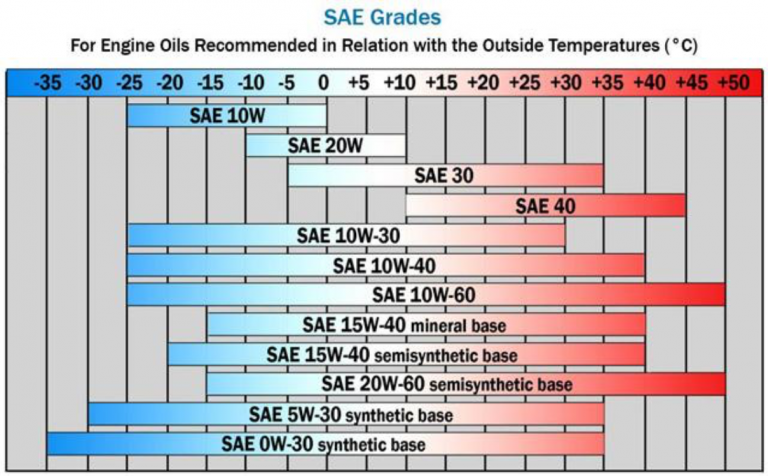
0W20 vs 5W20 Viscosity explained
The less viscous synthetic oil is at low temperatures, the lower number you’ll see at the beginning. 0 in 0W20 means that the viscosity equals 0 in cold temperature, so, as you might have guessed, 0W20 will flow better at lower temperatures than 5W20.
0W20 – 5W20 Thickness differences
It is important to take into account the thickness of the motor oil. The higher the viscosity, the better the load it can support. 0W-20 is too thin for trucks, SUVs, etc., it is intended for lighter use in diesel and petrol engines. 5W20, in contrast, can support heavier loads, so it’s perfect for vans, 4×4 off-roaders, etc.
Although both oils are intended for use in cold-weather regions, 0W-20 is a better option for those who live in colder regions, where the temperature falls beyond -25°. In extremely cold temperatures 0W-20 also gives slightly less wear at cold startup, as it flows freely at -30°/-40°. 5W-20, in its turn, resists shear under heavy loads better than 0W-20 thanks to its higher viscosity. So in the battle of 2 synthetic motor oils with very similar properties 0W-20 receives “Better low temperatures performance” award and 5W-20 wins “Better heavy-duty performance” trophy.
Tried and trusted synthetic 5w20 and 0w20 oil brands
Time to talk about synthetic oils manufacturers and find out what are the most trusted brands
Valvoline
American manufacturer that has operated successfully since 1866, today Valvoline is a leading automotive supplies and services brand. The company distributes own-branded engine lubricants, oils and additives and owns a wide chain of car repair centers and instant oil change centers. Known for its premium-class DIY motor oil, Valvoline goes the extra mile in developing innovative formulas of the oils and engine lubrication additives.
Castrol
British global brand, founded in 1899, entered American market over 100 years ago. Castrol offers the widest range of automotive and industrial lubricants – greases, conventional and synthetic oils, lubricating fluids and other products. Their special Liquid Engineering technology helps their oils to provide the best possible engine protection. Castrol is also known for its exceptional compatibility to almost any vehicle brand and engine.
Pennzoil
Pennzoil was founded in the USA in 1913. It was the first company that started using natural gas instead of crude oil. This company offers motor oils, fluids, lubricants, filters and other products for different vehicles. Known for its exceptional quality and loved by the vehicle owners for its affordable price, Pennzoil uses only the purest oils and best additives. Company’s scientists and engineers constantly work on developing new technologies and innovating the existing ones.
Royal purple
Royal Purple is one of the youngest American manufacturers that specializes in producing lubricants for automotive, racing, industrial and military use. Its founder John Williams was a pioneer in the development of high-performance synthetic lubricants. Known mainly for its line of top-quality synthetic Royal Purple Motor Oil. The secret formula of their popularity is simple – they use premium base oils and premium additives, and also add some innovations and dedicated work.
AmasonBasics
Did you expect to see AmazonBasics in the list of best synthetic oil manufacturers? No? Neither did we. but actually Amason (with the cooperation of Warren distribution) produces pretty decent motor oils, suitable for almost all vehicles. The oils are fully certified. Although first AmazonBasics motor oils were introduced in 2018, company’s scientists have been working on innovating and reinventing synthetic lubricants formulas for a long time before they started selling their production. Their commitment to quality and innovation is greatly appreciated by the customers all over the world.
0W20 or 5W20? Choosing The Right Motor Oil - Best Products And Most Reliable Brands
Now that we found all the differences and similarities of 0W20 and 5W20, we’re going to take a better look on leading synthetic oils brands and specifications.
0W20 and 5W20 top picks
These days, when the shelves are heaped with different synthetic oils, determining which one of them is the best for your car can be a difficult task to manage. We created a list of 8 top picks for you, so with this information in hand you’ll be able to choose the best synthetic oils available.

0W-20 – best 4 low-viscosity oils that meet your every need
We’ve selected four best 0W-20 motor oils in four different categories.
Castrol 03060 is perfect for winter months, as it maintains a low viscosity level when the temperature drops. Even when it’s getting colder, the oil continues flowing smoothly, covering all of the motor parts properly. It is also good for cooler summer, as it doesn’t thin out too much.
Thanks to a nice mix of additives in Castrol 03060 you get high lubrication alongside with a greater degree of maintenance. The composition quality is truly good; it keeps the engine running smoothly for an extended period of time. Increased fuel economy is another advantage of this synthetic motor oil; you won’t have to change it as often as conventional or synthetic blend oils.
Mobil 1 120758 Advanced Full Synthetic Motor Oil formula includes innovative components, which complement the oil perfectly. It brings many benefits, such as cleaner engine – the additives dissolve accumulated deposits and rust and also protect all engine parts from rust and dirt build up. Corrosion prevention is also a great advantage which improves engine performance significantly. The lubricating properties of this oil are quite strong. It creates a protective layer between the engine parts, thick enough to minimize friction, and thin enough to flow easily during colder days.
Developed for longer drain intervals, AmazonBasics full-synthetic 0W-20 motor oil provides enhanced lubrication to protect all parts of the engine. Fully certified, it offers exceptional quality. Thanks to special friction-reducing formula, AmazonBasics oil provides great lubrication and creates a protective layer, thick enough to minimize frictions and reduce motor tear and wear to the most possible extent.
If you are looking for a budget-friendly synthetic motor oil that can still protect your engine, increase its performance, and improve fuel efficiency, then Valvoline Advanced is definitely what you need. Unique additives do a great friction minimizing job, clean the engine and reduce tear and wear significantly. High fuel efficiency adds value. Developed for use during colder months, Valvoline Advanced provides quick oiling under low temperatures, so the engine starts quickly and works smoothly. Also good for mild summer. Oil changing intervals are bigger and fuel efficiency is higher.

5W-20 – top 4 oils in different categories
Now let’s take a look on 5W-20 synthetic oils and see what the manufacturers have for us there.
There are so many great features associated with this motor oil, such as a high level of lubrication – Valvoline High Mileage molecular structure is quite thick, so it offers enhanced protection. At the same time, it’s not too thick, so you can use it in summer. Advanced thermal and oxidative stability of this oil help to reduce oil burn-off and increase power output to a great extent. Last but not least, Valvoline High Mileage provides additional lubrication, suitable for a not-so-new engine with signs of wear and tear. It also contains some extra additives to remove old deposits and keep the engine as clean as possible. Together it all makes Valvoline High Mileage our Editor’s top choice motor oil.
Royal Purple 36520 is a low-friction engine oil with a great compatibility. It is suitable both for new cars and older vehicles. Special Synerlec Additive technology with balanced blend of high-quality additives provides enhanced protection from corrosion, rust and deposits buildup and delivers excellent lubrication. This oil reduces internal friction, minimizes engine tear and wear, and boosts fuel economy. Great for milder summer and winter.
Almost 3500 customer reviews with 4.8 stars out of 5 – there is no doubt that this synthetic oil does an excellent job. The sheer quality is the synonym of Castrol 03086 EDGE. Unique fluid titanium additives which help Castrol 03086 oil to resist this pressure and increase its lubricating properties. Castrol says it’s their most advanced full synthetic motor oil that provides ultimate performance. Suitable for numerous vehicles. If you are looking to improve the overall durability of your engine, this is certainly the oil for you.
Pennzoil Platinum Full Synthetic Motor Oil meets and exceeds essential car manufacturers’ requirements for engine protection and cleanliness. It is made from high-class synthetic base oil and unique high-performance additives, which help to dissolve contaminants and prevent the build-up of deposits, sludge and corrosion.
Faq - Everything You Need To Know About Synthetic Motor Oils
What is synthetic motor oil? What advantages does it have?
Synthetic oil is an engine lubricant made from base – usually highly refined crude – oil, carrier oil and powder additives. It is artificially made – synthesized, therefore it is called synthetic. Also known as multi grade oil, as it meets the requirements of multiple (two) viscosity grades and can be used in low and high temperatures. Motor oils help to minimize friction between different parts of the engine; thanks to its properties synthetic oil provides better lubrication by forming continuous layer over the motor parts, ensures smooth operation and increases engine life.
Synthetic motor oil advantages:
- Enhanced engine protection from wear and tear;
- Greater temperature resistance, better engine work under high and low temperatures;
- Cleaner motor – synthetic oil contains special additives that help to clean deposits and sludge;
- Lower oil consumption, longer intervals between oil changes;
- Fewer emissions.
Together all these advantages contribute significantly to increased engine performance and noticeable fuel economy.
Is synthetic oil worth paying more for?
Although full synthetic motor oils are more expensive than conventional or synthetic blends, all the expenses will be more than compensated, as synthetic oil provides increased fuel economy, and decreases engine wear and significantly extends engine life.
How often should I change synthetic oil?
I have an older car, can I use synthetic oil?
Absolutely yes, you can use synthetic oils both for older and newer vehicles.
Important: older cars often have considerably more mileage that results in engine wear and tear. In such cases use special high-mileage synthetic oils – they are thicker and provide better sealing; many high-mileage oils also contain higher doses of anti-wear additives.
Is synthetic oil compatible with gasoline engines? What about diesel?
Most synthetic motor oils are suitable for both diesel and gasoline engines. But still we recommend to check the label before you buy synthetic oil.
What is viscosity?
Viscosity is an important property of the motor oil. It is defined by the size of oil molecular structures. Viscosity indicates the oil’s resistance to flow, i.e. it shows how easily and fast the motor oil flows through the different parts of the engine. Synthetic oils with low viscosity pour easier at cold temperatures compared to the oils with higher viscosity.
Thinner or thicker oil – what is better?
It depends on the climate conditions where you live and the vehicle you drive. Thinner oils are good for using in colder weather and for light duty vehicles. Thicker oils are perfect for higher temperatures and heavier loads; they help to maintain oil pressure and film strength when it heats up.
What do Dexos 1 and Dexos 2 mean?
Dexos 1 motor oil is suitable for gasoline engine; Dexos 2 oil is designed for diesel engine but also can be used for gasoline engines too. These oils have different SAPS levels. Dexos 1 can handle oil changing interval for longer time thanks to its high SAPS level. Dexos 2, with its low SAPS level, can not hold oil changes intervals for a long periods, but it is more environmental friendly than Dexos 1.
Are 0W20 and 5W20 interchangeable?
More or less, yes. 0W20 and 5W20 are quite similar, but still you have to make a choice based on your local weather. If you’re not sure what oil to choose, then check what your owner’s manual says about suitable viscosity. You will possibly find both 0W20 and 5W20 in the list; if no – just use the oil recommended by your vehicle manufacturer.
My owner’s manual says I have to use 5W20, can I use lighter (5W10) or heavier (5W30, 5W40) grade?
No, it’s better to stick to the recommended grade and avoid using thinner or thicker oils. Using lighter motor oil will lead to faster mechanical wear and shorten engine life in the long-term perspective. Using heavier oil will also reduce engine life and decrease the fuel economy significantly. Never select the oil randomly.
Should I switch oils in winter and summer? Can I use 0W20 and/or 5W20 in warmer seasons?
Again, it depends on your local weather. 0W and 5W oils are typically recommended for winter use, but they’re also good for mild summers (up to +20°). If the temperature during the hot season reaches +20° or more, use thicker motor oil
Synthetic motor oils are more expensive than conventional, but they last longer and, what’s more important, offer enhanced engine protection, especially under heavy workloads and extreme weather conditions. There are so many choices when it comes to synthetic motor oils and it’s not so easy to fight the right one for your engine, especially when your vehicle manufacturer includes several recommended oil types in the owner’s manual. But there are two simple rules which can help to decide between many available options.
Rule 1
- Lower viscosity – for lower temperatures.
- Higher viscosity – for higher temperatures.
Rule 2
- Thinner oils – for lighter vehicles.
- Thicker oils – for heavy-duty vehicles.
And one more hint: check user reviews and buy synthetic motor oils from tried and trusted brands only. That is how you find the right lubricant for the best engine performance. No need to waste your money and experiment with different manufacturers or waste your time and go through multiple articles and reviews – we’re happy to take this challenge up for you.


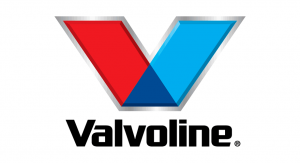


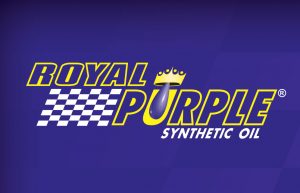

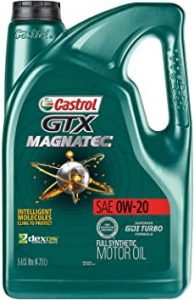
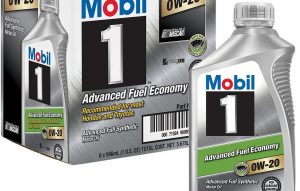
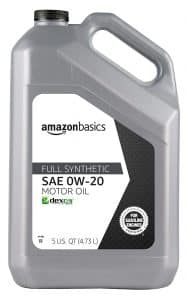
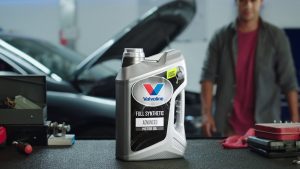
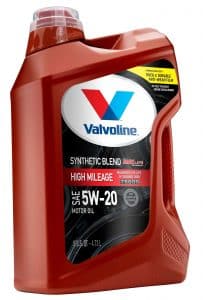
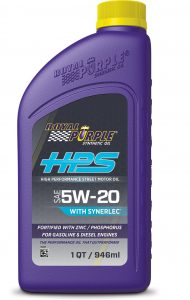
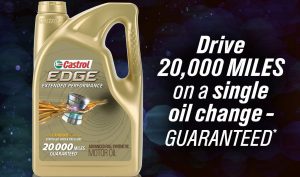
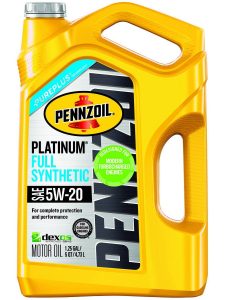

It always hear that you get better mileage with 0W20 and the only difference to 5W20 is the temperature that is only applicable to cold climate. I tried using 0W20 even if the owner’s manual says 5W20 just to check if I can get better mileage. I’m still getting 15.9MPG! I guess 5w20 is still best for my vehicle.
There was a time I accidentally put 0w-20 instead of 5w-20, and yes they look similar but still different. Although it was winter when I change oil, I had to research if I can wait until my next oil change before going back to 5w-20. Luckily, I chanced upon this article and for my 2010 Civic it’s also safe to use 0w-20 during winter in Canada.